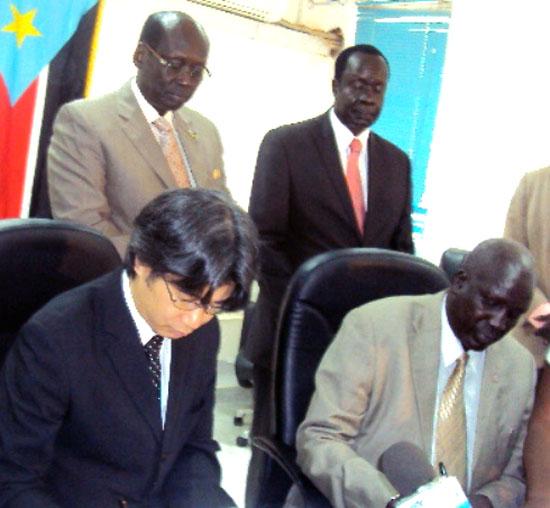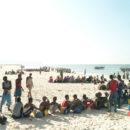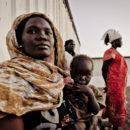Japanese international development: human rights and democracy still the elephant in the room – By Magnus Taylor

The Japan International Cooperation Agency (JICA) is clearly an organisation with a positive PR agenda. The lunch laid out after the briefing with their Vice President, Mr Kiyoshi Kodera, told you that alone. With good reason too, because JICA is not well-known in the UK despite having existed in one form or other since the 1970s.
It is however, quite quietly, doing some interesting work across the world, and clearly reaping a degree of international good will. Mr Kiyoshi himself comes from a long and successful career at the World Bank and IMF where he became Executive Secretary of the Development Committee.
Japanese international development seems to encounter many of the same problems as those pushing for it in Europe/US. In times of financial austerity, the voting public become more inward looking and naturally spendthrift. However, JICA has managed to stop the slide away from development assistance, re-orienting the focus towards the MDGs and Sub-Saharan Africa.
Another key focus is the “˜Yen loan’ programme – providing concessionary loans to developing countries at low interest rates (around 0.75 percent). This rate is further reduced if the loan is to be used for climate change mitigation projects. It was interesting to know that the Yen loan is not widely implemented in sub-Saharan Africa (North Africa is a different story) with only Nigeria on the books, and then in quite a limited fashion.
Major work south of the Sahara has focused on doubling ODA by the end of 2012 (on track) and continuing technical assistance in areas like school education in science. In South Sudan (a post-conflict country of particular focus) the Japanese “˜Self Defence Force’ ie the army, has participated in the maintenance of basic infrastructure, including the rehabilitation of Juba’s port.
So it seems JICA is running a number of high-quality, technical programmes quietly and efficiently. However, the elephant in the room was the Japanese view of democracy and human rights in relation to their professed interest in the pervasive “˜governance agenda’ of Western donors. Mr Kiyoshi clearly cares about this, and admits that “democracy and human rights have a lot do with governance.” The Japanese Ministry of Foreign Affairs is clearly less forthcoming in its views, and as Mr Kiyoshi said “doesn’t talk about it in an open manner.” Whilst JICA may contribute towards electoral observation missions, and training of officials in civil law, it doesn’t do what DFID or the FCO do and openly criticise the actions of other governments.
So, my main question is what exactly is JICA’s vision? Is the softly, softly approach ideological ie Japan has no place in the internal affairs of other sovereign states? Or is it a desire to avoid rubbing international partners/friends up the wrong way? But if, as Mr Kiyoshi acknowledges, human rights and democracy are central to the governance agenda, then why isn’t JICA talking more openly about human rights and democracy?
Magnus Taylor is Managing Editor, African Arguments Online





